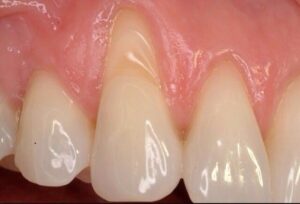
Does your toothbrush start to splay after a few months… or even weeks?
You may be over brushing. A telltale sign of this is when your toothbrush bristles start to splay quickly; and when bristles start to splay, they become ineffective at removing plaque.
Let’s talk a little about an all-too-common problem that I see every day in my working life.
When a person brushes too hard, too fast, applies too much pressure, uses an abrasive toothpaste, rushes their brushing, or uses a medium or hard toothbrush, over time the bristle roughens the tooth surface to form fine depressions on the surface. Seen usually near the gum line, gradually the depression becomes deeper and wider causing the teeth to become sensitive.
How many of you had parents that use to say to you as a child ‘’go scrub your teeth’’, so naturally we grow up thinking brushing hard and vigorously would be more beneficial and get your teeth cleaner. But no, years later the damage starts to show.
So here are my top tips to preventing toothbrush abrasion:
- Use a fluoridated, low abrasive toothpaste.
- Avoid vigorous brushing.
- Avoid brushing when you are in a rush – it is all too easy to scrub hard and fast when you are in a rush.
- Use a soft-bristled toothbrush to brush your teeth – my go to is the world famous Curaprox Ultra Soft toothbrush (click here).
- Hold the toothbrush at 45-degree angle and brush the teeth in circular motions and short strokes.
